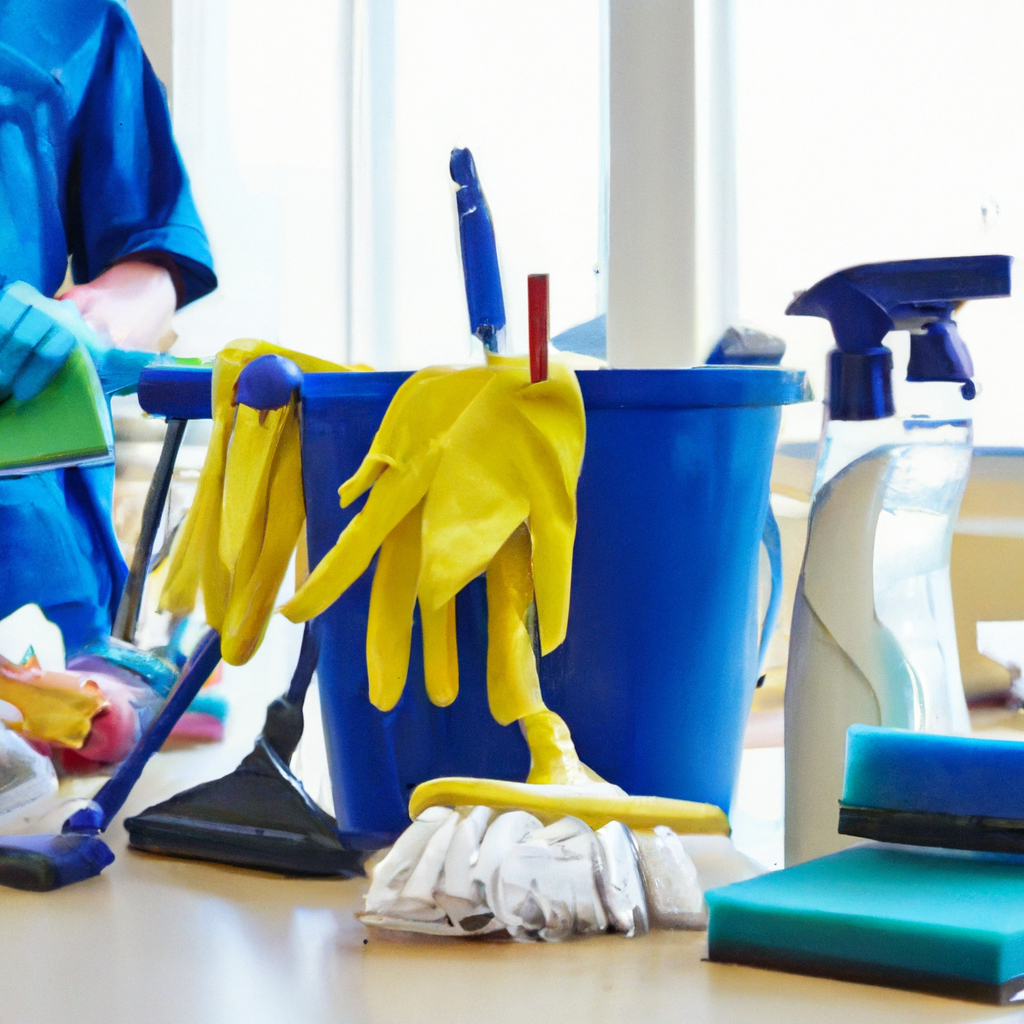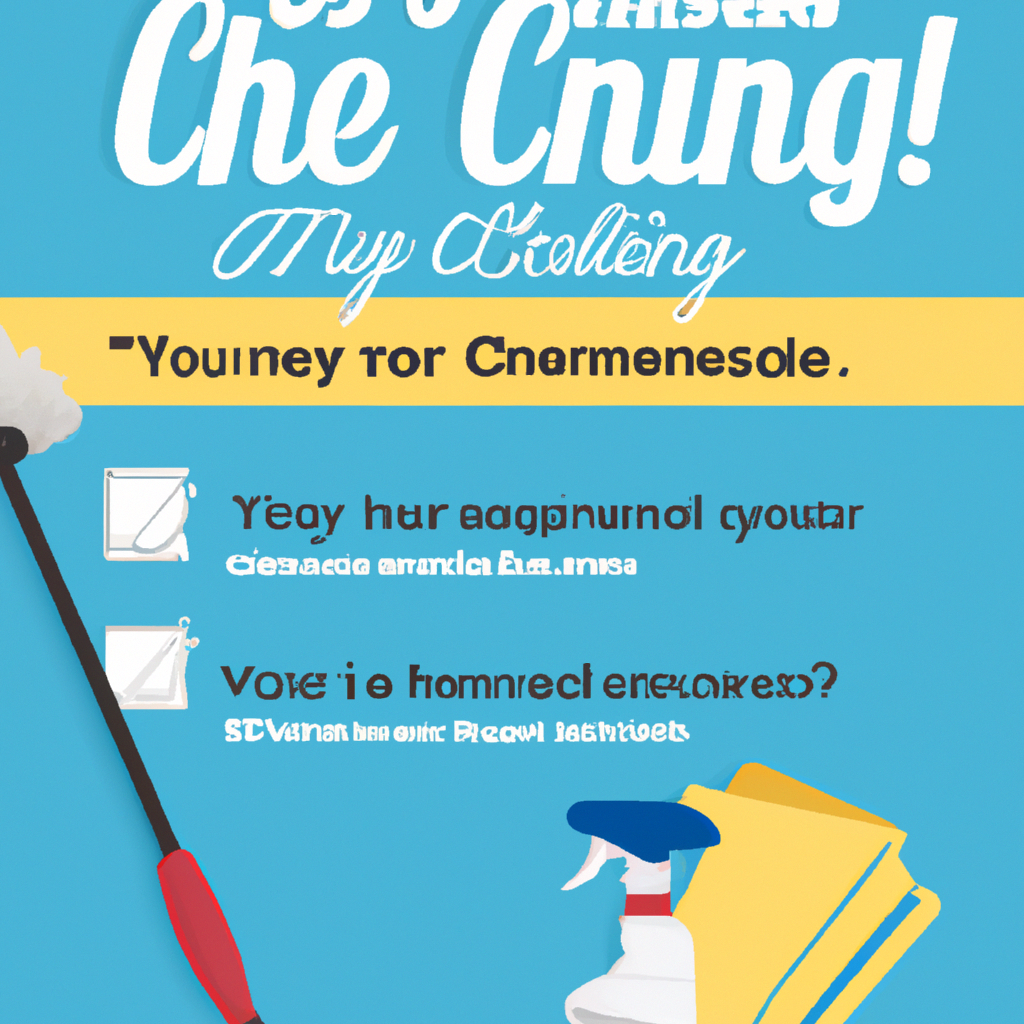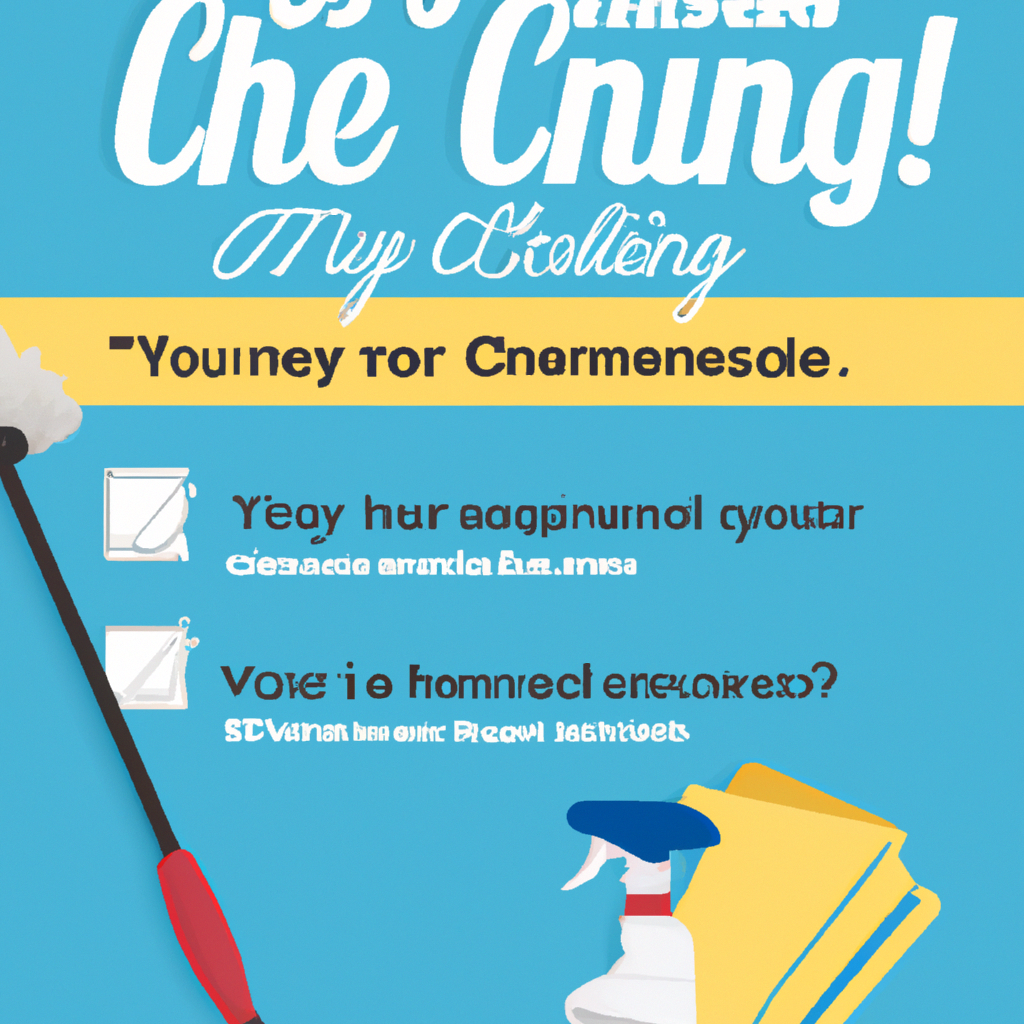If you’re contemplating hiring a reputable cleaning company, you might be wondering whether they should be licensed and insured. It’s a valid concern, as finding a reliable and trustworthy cleaning service is crucial for the safety and security of your home or office. In this article, we’ll explore the benefits of working with a licensed and insured cleaning company, including the peace of mind that comes with knowing you’re protected against potential liabilities. So, let’s dive into the importance of licensing and insurance in the cleaning industry and discover why it matters for both you and the cleaning professionals.

Benefits of Licensing
Ensuring Quality Service
Choosing a licensed cleaning company means that you can expect a certain level of quality in their service. The licensing process typically includes requirements and standards that the company must meet in order to obtain and maintain their license. This ensures that the company has the necessary skills, knowledge, and equipment to provide satisfactory cleaning services. By hiring a licensed company, you can have peace of mind knowing that you will receive reliable and professional service.
Protecting Customers
Licensing also plays a crucial role in protecting customers. When you hire a licensed cleaning company, you can trust that they have undergone background checks and screening processes. This helps to ensure that the company’s employees do not have a criminal history or other concerning factors that could pose a risk to you, your family, or your property. Licensing provides an added layer of security and protection for customers, giving you confidence in the integrity and trustworthiness of the company you choose to hire.
Maintaining Professional Standards
Licensed cleaning companies are required to adhere to specific professional standards set by regulatory bodies. These standards encompass a range of factors, including safety practices, ethical guidelines, and proper disposal of waste and hazardous materials. By meeting these standards, licensed cleaning companies demonstrate their commitment to providing safe, efficient, and environmentally responsible cleaning services. When you hire a licensed company, you can expect a level of professionalism that reflects their dedication to upholding these standards.
Building Trust and Credibility
Hiring a licensed cleaning company can also help build trust and credibility between the company and its customers. By obtaining a license, the company demonstrates a commitment to professionalism, accountability, and quality. This commitment goes a long way in building a positive reputation and establishing trust with clients. Additionally, licensing allows customers to easily verify that the company is operating legally and has met the necessary requirements. This transparency strengthens the relationship between the company and its customers, fostering a sense of trust and confidence in the services provided.
Requirements and Processes for Licensing
Background Checks and Screening
One of the key requirements for licensing involves background checks and screening processes for cleaning company employees. This typically involves thorough checks for criminal records, employment history, and references. By conducting these checks, licensing authorities aim to ensure that employees working in the cleaning industry are trustworthy and pose no risk to customers. Background checks and screening processes contribute to the overall safety and security that licensed companies offer.
Training and Certifications
Licensed cleaning companies often go through training programs and obtain certifications to enhance their skills and knowledge in the industry. These programs cover various aspects of cleaning, including techniques, safety protocols, and the use of specialized equipment. By investing in training and certifications, licensed companies ensure that their employees are equipped with the necessary expertise to provide high-quality cleaning services. This commitment to ongoing education and development sets licensed companies apart from their competitors.
Compliance with State Regulations
To obtain and maintain a license, cleaning companies must comply with state regulations specific to the cleaning industry. This includes adhering to safety standards, proper waste disposal procedures, and any other regulations that govern the industry. By complying with these regulations, licensed companies prioritize the well-being and safety of their employees, customers, and the environment. Compliance with state regulations plays a crucial role in maintaining the professionalism and accountability of licensed cleaning companies.
Financial Stability
Another factor considered during the licensing process is the financial stability of the cleaning company. This requirement ensures that the company has the necessary resources and stability to provide consistent and reliable service to its customers. Financial stability helps to assure customers that the company is not at risk of suddenly going out of business or being unable to fulfill its obligations. By choosing a licensed cleaning company, you can have confidence in their ability to meet your cleaning needs and provide long-term service.
Liability and Insurance Coverage
Protection for Clients
Liability and insurance coverage are essential aspects of licensing for cleaning companies. These provisions offer protection for clients in the event of accidents or damages that may occur during the cleaning process. If a licensed cleaning company causes any damage to your property or belongings, their insurance coverage can help cover the costs of repairs or replacements. This protection gives clients peace of mind knowing that they will not be financially burdened by any unforeseen incidents.
Coverage for Accidents and Damages
Accidents happen, even in the most careful cleaning operations. However, when you hire a licensed cleaning company, you can rest assured knowing that they have insurance coverage to handle any damages that may occur. Whether it’s a broken item, a spill, or any other accidental damage, the company’s insurance will help cover the costs of repair or replacement. This coverage protects both the cleaning company and the client, ensuring that neither party is left with unexpected financial liabilities.
Workers’ Compensation
Licensing often includes requirements for cleaning companies to have workers’ compensation insurance. This insurance coverage protects both the employees of the cleaning company and the clients they serve. In the event of an accident or injury to a worker while on the job, workers’ compensation provides the necessary medical coverage and financial support. By hiring a licensed cleaning company with workers’ compensation insurance, you can have peace of mind knowing that you will not be held liable for any injuries that occur on your property.
Bonding and Theft Insurance
Licensed cleaning companies often have bonding and theft insurance to protect clients in case of any theft or loss of property during the cleaning process. Bonding insurance provides compensation to clients if any valuable possessions go missing while the cleaning company is working. This coverage gives clients reassurance that their belongings are protected and that the cleaning company takes responsibility for any losses that may occur.
Legal Considerations
Liability in the Event of Mishaps
Hiring a licensed cleaning company helps to protect you legally in the event of any mishaps or accidents that may occur during the cleaning process. Licensed companies are accountable for any damages they cause and are legally required to address the situation appropriately. This liability ensures that you as the customer are not left alone to deal with the consequences of any mistakes or accidents that may happen.
Workers’ Rights and Payment
Licensing requirements often encompass provisions for workers’ rights and fair payment practices. Licensed cleaning companies are required to adhere to labor laws, ensuring that their employees receive fair wages, proper working conditions, and other benefits entitled to them by law. By hiring a licensed company, you can have confidence that the workers who come into your home are treated fairly and compensated appropriately for their work.
Tax Compliance and Reporting
Licensed cleaning companies are more likely to be compliant with tax regulations and reporting requirements. This compliance is essential for maintaining the integrity and professionalism of the cleaning industry. By hiring a licensed company, you reduce the risk of engaging with a company that may not adhere to tax laws, enabling you to avoid potential legal complications or penalties.
Avoidance of Legal Penalties
Operating without a license or insurance can result in severe legal penalties for cleaning companies. By hiring a licensed cleaning company, you ensure that you are not engaging with an illegal or unregulated operation. This protection helps you avoid any potential legal issues and provides peace of mind knowing that the company you hire is operating within the bounds of the law.

Risks of Hiring Unlicensed and Uninsured Companies
Quality of Services
Hiring an unlicensed and uninsured cleaning company poses risks in terms of the quality of service you will receive. Unlicensed companies may lack the necessary skills, training, and knowledge required to provide satisfactory cleaning results. Without insurance, they may also be less incentivized to rectify any mistakes or damages caused during the cleaning process. Choosing an unlicensed and uninsured company puts you at risk of subpar cleaning services that may not meet your expectations.
Safety and Security
Unlicensed and uninsured cleaning companies may not have undergone the requisite background checks and screening processes for their employees. This poses potential safety and security risks to you, your family, and your property. By hiring a licensed and insured company, you can mitigate these risks and have confidence that the individuals entering your home have undergone the necessary checks to ensure your safety.
Lack of Recourse for Damages
When you hire an unlicensed and uninsured cleaning company, you may face difficulties in seeking recourse for any damages caused during the cleaning process. Without insurance coverage, the company may not have the financial means to compensate you for any loss or damage. As a result, you may be left to bear the costs of repairs or replacements without any means of recovering your expenses. Choosing a licensed and insured company ensures that you have the necessary protection and recourse if any damages occur.
Accountability and Responsibility
Unlicensed and uninsured cleaning companies may lack the accountability and responsibility that come with obtaining a license and insurance coverage. If anything goes wrong during the cleaning process, you may find it difficult to hold the company accountable for their actions. Licensed and insured companies, on the other hand, are held to specific standards and regulations, making it easier to address any issues that may arise and ensuring that they take responsibility for their actions.
Educating Consumers
Recognizing the Importance of Licensing and Insurance
Consumer education plays a vital role in helping individuals understand the importance of hiring licensed and insured cleaning companies. By raising awareness about the benefits and protections that come with licensing and insurance, consumers can make more informed choices when selecting cleaning services. Understanding the significance of licensing and insurance empowers consumers to prioritize their safety, security, and quality of service.
Identifying Licensed and Insured Companies
Educating consumers about how to identify licensed and insured cleaning companies is crucial in ensuring a safe and reliable selection process. Providing information on the requirements and indicators of a licensed company equips consumers with the knowledge to make informed decisions. This education can include tips and guidelines for recognizing licensing numbers or checking for insurance coverage.
Verifying Licenses and Insurance Coverage
Encouraging consumers to verify licenses and insurance coverage before hiring a cleaning company is essential in fostering accountability and protection. Providing resources and tools that allow consumers to easily verify this information helps them make confident choices in selecting a reputable and responsible cleaning service provider. Verification processes can involve online databases or contacting relevant licensing authorities to ensure the legitimacy of a company’s credentials.
Reporting Unlicensed or Uninsured Companies
Empowering consumers to report unlicensed or uninsured cleaning companies is an important part of maintaining industry standards. Reporting agencies or platforms can be established to make it easy for consumers to report any suspicious or illegal operations. Timely reporting helps authorities take appropriate action against unlicensed and uninsured companies, ensuring the safety and protection of consumers.
Industry and Government Collaboration
Establishing Standards and Regulations
Collaboration between the cleaning industry and government bodies is crucial for establishing and updating standards and regulations related to licensing and insurance. By working together, industry professionals and authorities can develop comprehensive guidelines that address the evolving needs and challenges of the cleaning industry. This collaboration ensures that licensing requirements and insurance coverage keep pace with industry advancements and best practices.
Monitoring and Enforcement
Industry and government collaboration also plays a vital role in monitoring and enforcing compliance with licensing and insurance requirements. Regular inspections, audits, and investigations can help identify and address any violations or non-compliance. By actively monitoring and enforcing these regulations, authorities ensure that companies uphold the necessary standards and protect consumers’ interests.
Educational Campaigns
Collaboration between the cleaning industry and government can lead to educational campaigns that promote consumer awareness and understanding of licensing and insurance. These campaigns can include informative materials, workshops, or online resources that highlight the benefits of hiring licensed and insured cleaning companies. By working together, industry professionals and government bodies can effectively communicate the importance of licensing and insurance to consumers.
Stimulating Consumer Awareness
Industry and government collaboration can stimulate consumer awareness through joint efforts to inform the public about the significance of licensing and insurance. This can involve press releases, media campaigns, or social media initiatives that reach a wide audience. By boosting consumer awareness, more individuals will recognize the importance of hiring licensed and insured cleaning companies, thereby driving demand for reputable and responsible service providers.
Benefits for Cleaning Companies
Enhanced Reputation and Marketability
Obtaining a license and insurance coverage can significantly enhance the reputation and marketability of cleaning companies. Licensing demonstrates a commitment to professionalism, while insurance provides a sense of security and trust to potential clients. By being licensed and insured, cleaning companies differentiate themselves from their competition and build a positive reputation that attracts more customers.
Mitigation of Risks
Licensing and insurance help cleaning companies mitigate various risks associated with their operations. Insurance coverage protects companies in the event of accidents, damages, or other unforeseen incidents. By transferring these risks to an insurance provider, cleaning companies can focus on delivering quality services without worrying about potential financial liabilities. Licensing also ensures that companies adhere to industry standards, reducing the risk of legal complications or penalties.
Expansion of Business Opportunities
Having a license and insurance coverage opens up new business opportunities for cleaning companies. Many clients, including commercial entities and government organizations, require service providers to be licensed and insured. By meeting these requirements, cleaning companies can access a wider pool of potential clients and lucrative contracts. Licensing and insurance act as stepping stones towards growth and expansion in the cleaning industry.
Competitive Edge in the Market
Being licensed and insured gives cleaning companies a competitive edge in the market. Reputable clients prioritize hiring licensed and insured companies to ensure the quality and security of their cleaning services. By satisfying these requirements, cleaning companies position themselves as trusted and reliable providers, giving them an advantage over their competitors. Licensed and insured companies can leverage their credentials to attract clients who value professionalism, accountability, and peace of mind.
Challenges and Concerns
Cost of Licensing and Insurance
One of the challenges for cleaning companies is the cost associated with obtaining and maintaining licenses and insurance coverage. The fees for licensing and insurance can vary depending on the jurisdiction and the size of the company. For small businesses or startups, these costs may pose a financial burden that requires careful budgeting and planning. However, the benefits of being licensed and insured often outweigh the initial expenses, as they contribute to the long-term growth and viability of the company.
Maintaining Compliance
Maintaining compliance with licensing requirements and insurance coverage can be a challenge for cleaning companies, especially as regulations and industry standards evolve. Companies must stay updated on any changes in licensing criteria, insurance policies, or reporting requirements. This necessitates ongoing education and a commitment to adapt and comply with the evolving landscape. While compliance may require additional resources and effort, it ensures that cleaning companies continue to meet the necessary standards and preserve their reputation.
Complexity of Insurance Coverage
Understanding the complexities of insurance coverage can be daunting for cleaning companies. Different insurance policies may have various coverage limits, deductibles, and exclusions that need to be carefully reviewed and understood. Cleaning companies may require professional consultation or legal advice to navigate the intricacies of insurance contracts. Despite the complexities, insurance coverage is vital for protecting both the cleaning company and its clients, and the investment in understanding the coverage is worthwhile.
Perceived Barriers for Small Businesses
Some small cleaning businesses may perceive licensing and insurance requirements as barriers to entry. The costs, administrative processes, and ongoing maintenance may seem overwhelming, especially for entrepreneurs starting with limited resources. However, it is important for small businesses to recognize that licensing and insurance provide long-term benefits and protection. Exploring options for affordable insurance coverage and seeking guidance from industry associations or government agencies can help small businesses overcome perceived barriers.
Conclusion
Licensing and insurance are fundamental aspects of operating a reputable cleaning company. They ensure quality service, protect both clients and companies, maintain professional standards, and build trust and credibility. Licensing requirements involve background checks, training, compliance with state regulations, and financial stability. Insurance coverage provides protection for clients, coverage for accidents and damages, workers’ compensation, and bonding and theft insurance. Hiring unlicensed and uninsured companies poses risks to service quality, safety, security, and accountability. Educating consumers, industry-government collaboration, and enhanced business opportunities are additional benefits of licensing. Challenges include the cost, compliance, complexity of insurance coverage, and perceived barriers for small businesses. Ultimately, licensing and insurance play a crucial role in upholding standards, protecting consumers, and promoting reputable cleaning companies within the industry.
